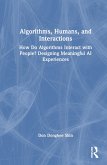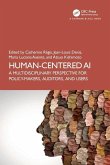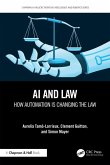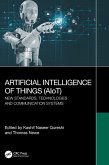Artificial intelligence (AI) permeates our lives in a growing number of ways. Relying solely on traditional, technology-driven approaches won't suffice to develop and deploy that technology in a way that truly enhances human experience. A new concept is desperately needed to reach that goal. That concept is Human-Centered AI (HCAI).
With 29 captivating chapters, this book delves deep into the realm of HCAI. In Section I, it demystifies HCAI, exploring cutting-edge trends and approaches in its study, including the moral landscape of Large Language Models. Section II looks at how HCAI is viewed in different institutions-like the justice system, health system, and higher education-and how it could affect them. It examines how crafting HCAI could lead to better work. Section III offers practical insights and successful strategies to transform HCAI from theory to reality, for example, studying how using regulatory sandboxes could ensure the development of age-appropriate AIfor kids. Finally, decision-makers and practitioners provide invaluable perspectives throughout the book, showcasing the real-world significance of its articles beyond academia.
Authored by experts from a variety of backgrounds, sectors, disciplines, and countries, this engaging book offers a fascinating exploration of Human-Centered AI. Whether you're new to the subject or not, a decision-maker, a practitioner or simply an AI user, this book will help you gain a better understanding of HCAI's impact on our societies, and of why and how AI should really be developed and deployed in a human-centered future.
With 29 captivating chapters, this book delves deep into the realm of HCAI. In Section I, it demystifies HCAI, exploring cutting-edge trends and approaches in its study, including the moral landscape of Large Language Models. Section II looks at how HCAI is viewed in different institutions-like the justice system, health system, and higher education-and how it could affect them. It examines how crafting HCAI could lead to better work. Section III offers practical insights and successful strategies to transform HCAI from theory to reality, for example, studying how using regulatory sandboxes could ensure the development of age-appropriate AIfor kids. Finally, decision-makers and practitioners provide invaluable perspectives throughout the book, showcasing the real-world significance of its articles beyond academia.
Authored by experts from a variety of backgrounds, sectors, disciplines, and countries, this engaging book offers a fascinating exploration of Human-Centered AI. Whether you're new to the subject or not, a decision-maker, a practitioner or simply an AI user, this book will help you gain a better understanding of HCAI's impact on our societies, and of why and how AI should really be developed and deployed in a human-centered future.
"Régis, Denis, Axente, and Kishimoto's book is among the pioneering works emphasizing the importance of human-centered AI. It plays a vital role in addressing our common challenge: How do we envision our future with AI? And what will we do to activate this vision?"
--Yoshua Bengio, Professor of Computer Science at Université de Montréal, Canada
--Yoshua Bengio, Professor of Computer Science at Université de Montréal, Canada








